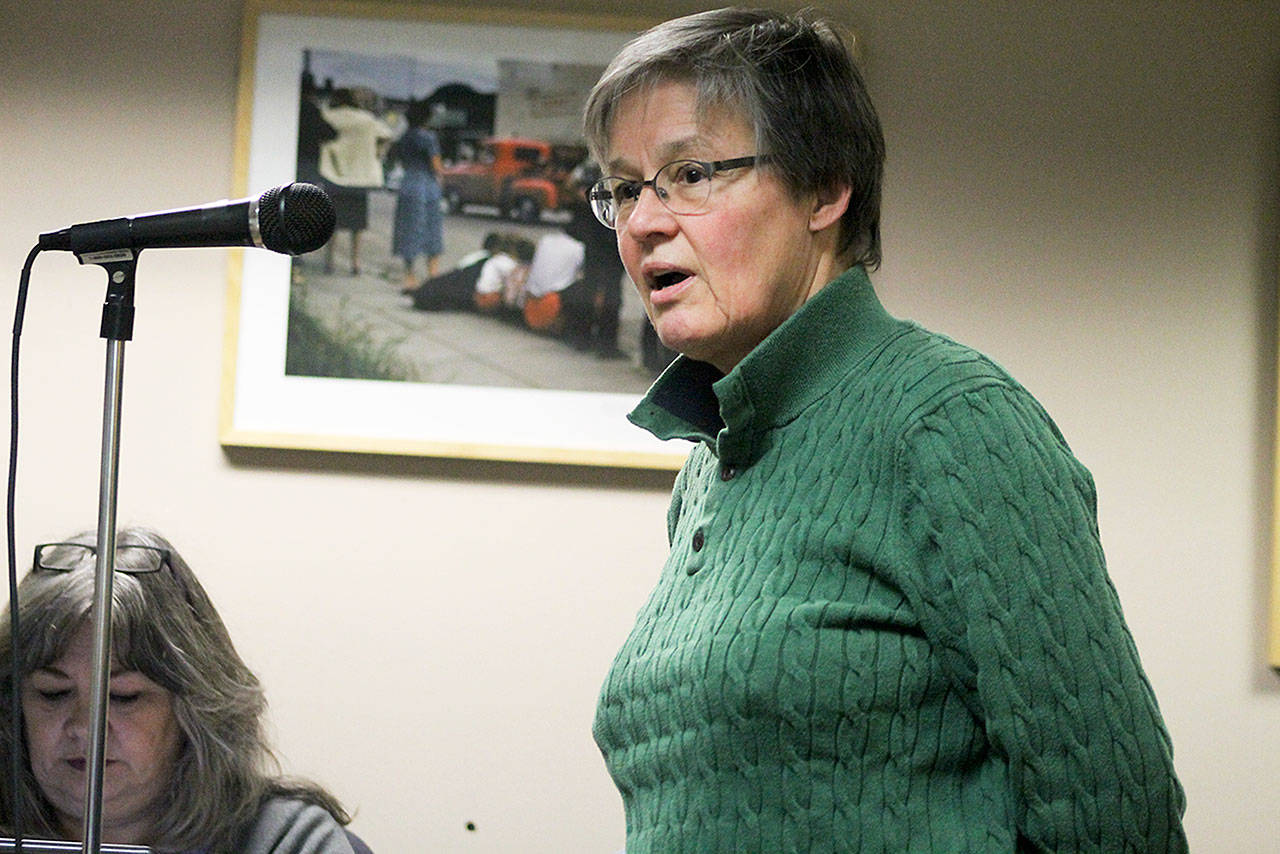A quandary spanning several months over property zoning in a Langley neighborhood was settled this week.
The Langley City Council accepted a recommendation by the Planning Advisory Board to rezone two properties at Second Street and DeBruyn Avenue as “mixed residential.” It also agreed to follow the board’s recommendation to amend a draft land use designation map that would have changed the properties from residential to commercial.
The modifications, approved by the council on Jan. 16 at city hall, won’t affect property owner JR Fulton’s plans to build multi-family housing. It also helps alleviate adjacent residents’ concerns that a commercial designation was incompatible with a residential area.
The Langley Association of Neighbors Downtown (LAND) requested the amendments and rezoning at previous planning board meetings.
Barbara Small, a member of the group, considered the outcome to be a reasonable compromise. She said her concerns stemmed from previous problems with indoor amplified music at The Machine Shop and the wider implications of what is allowed under the Neighborhood Business Zone designation; there is no definition or purpose for the zone in the city’s current municipal code, but it is generally defined as small commercial or mixed-use establishments located in or adjacent to residential areas.
“We had concerns primarily about this being commercialized,” Small said. “…Sure, we would love it being a single-family residence. But we understand the need.”
“It was a really wonderful resolution. It was a very democratic process,” she added.
Details of the multi-family housing project cannot be determined until a development application is submitted, Reynolds said.
Fulton is unsure if it is a favorable compromise. Commercial zoning rules are less restrictive when it comes to lot coverage and includes a variety of uses that could be used to leverage reduced housing costs, he said.
“We are considering more affordable, walkable housing options for families and people who work in Langley,” Fulton wrote in an email. “If there is truly strong community and neighborhood support for allowing us to design and build less expensive housing, then yes.”
Thomas Gill, who rejoined the planning advisory board after serving four years on the city council, said the end result appeared to be the best solution and that any deficiencies can be addressed when an application comes forward.
“There were other options, but most of them are more long term to address the ability to have a commercial use adjacent to single-family residences,” Gill wrote in an email. “…I feel this will be beneficial for the neighborhood, the property owner, and the city/island in general, and this should allow a number of residences to be built that can help to add supply to try to meet the demands for housing.”
Fulton, a member of the planning board, recused himself from deliberating on the subject at a Jan. 3 meeting and instead participated as a property owner, Gill said. He and LAND agreed that rezoning the properties to mixed residential was an acceptable solution.
The previous property owner submitted a request for the zoning changes in 2014. The proposal was added to the comprehensive plan update, the policy document that will guide city development over the next 20 years, as well the draft land use designation map. Comments, however, were submitted to the city during the development of the plan, which started in 2014, expressing concern about the rezoning and its incompatibility with adjacent residential areas.
According to the comprehensive plan’s land use section, the distribution and location of land-use densities is meant to coincide with growth projects and availability of public services. Expanding business, commercial and higher intensity residential developments outward from the downtown core area should only “occur as needed to meet community needs.”
Small said rezoning the properties from residential to commercial conflicted with the plan’s goals and could lead economic activity away from the downtown business core and disrupt residences.
Future discussions are likely to revolve around potential revisions to the purposes, permitted uses, definitions and other regulations of the Neighborhood Business Zone. Small, who was one of several LAND members who took issue with the city council increasing the number of indoor music events at The Machine Shop allowed in a year, is optimistic that talks will remain diplomatic.
“I am encouraged by a trend that I’m seeing in our local government, especially since the election of new council members,” Small said. “There seems to be a new commitment to transparency and outreach that encourages me about the possibility of local democratic governance.”



